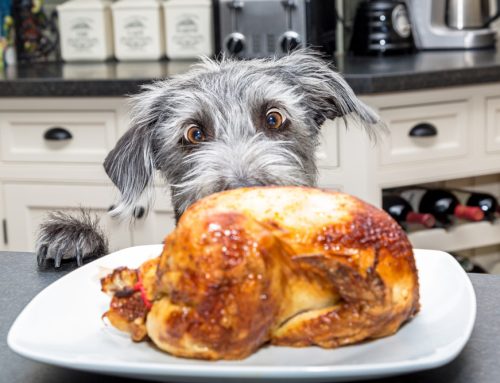Is Your Pet’s Curiosity a Health Hazard? Understanding GI Foreign Bodies
A gastrointestinal (GI) foreign body is a term used when your pet swallows an object that can become stuck in their stomach or intestines. This situation is surprisingly common among pets, particularly dogs, who are naturally inquisitive and often explore the world with their mouths. GI foreign bodies can be extremely dangerous and potentially life-threatening, requiring immediate attention. For residents of Westerville, Ohio, West Vets Emergency Veterinary Clinic stands ready to provide the necessary care in these urgent situations.
What Kinds of Objects Cause Problems?
Common household items like socks, children’s toys, small balls, bones, corn cobs, and strings are frequent culprits. Pets can ingest almost anything small enough to be swallowed, which then can cause an obstruction. For more information, visit our page on common household objects that may be harmful to pets.
Recognizing the Signs
The symptoms of a GI foreign body in pets can vary but typically include one or more of the following signs:
- Vomiting: Persistent vomiting is a red flag that something may be wrong.
- Diarrhea: Particularly if it is sudden or severe, diarrhea can indicate a problem.
- Loss of appetite: A sudden disinterest in food is a concern in any pet.
- Lethargy: If your pet is less active or seems unusually tired, it could be a sign of distress.
- Abdominal pain: If your pet shows discomfort or pain around their belly, or if their abdomen seems swollen, it’s time to seek help.
- Difficulty with bowel movements: Straining or inability to pass stool can indicate an obstruction.
- Behavioral changes: Look for signs like restlessness or whining, which can indicate discomfort or pain.
What To Do If You Suspect a Problem
If you suspect your pet has ingested a foreign body, immediate action is crucial. Do not try to induce vomiting as this can cause further harm. If possible, bring a sample of your pet’s vomit or stool to the clinic to help with diagnosis. Remember, quick and effective veterinary intervention can be lifesaving. Contact West Vets Emergency Veterinary Clinic immediately if you believe your pet is in danger.

Diagnosis and Treatment
Upon arrival at the clinic, a veterinarian may use diagnostic tools like X-rays, ultrasound, or even an endoscopy to locate and identify the foreign body. Treatment will depend on the nature of the obstruction; some cases might be resolved with endoscopic removal, while others may require surgical intervention. Supportive care, such as IV fluids and medications, may also be necessary to help your pet recover.
Prevention is Key:
Preventing your pet from ingesting foreign objects in the first place is the best strategy. Pet-proof your home by securing trash, keeping small objects out of reach, and choosing pet toys that are durable and size-appropriate. Always supervise your pet during playtime, and use training commands like “leave it” or “drop it” to control what your pet picks up or holds onto.
West Vets Emergency Veterinary Clinic: Your Partner in Pet Health
Located in Westerville, Ohio, West Vets Emergency Veterinary Clinic is equipped to handle all types of pet emergencies, including GI foreign bodies, 24/7. Our commitment is to provide compassionate, high-quality care for your pets in a time of need. For more details on how we can help, visit our official website.
Conclusion:
Understanding the risks and signs of GI foreign bodies in pets is crucial for every pet owner. Swift recognition and reaction to these signs can often lead to a full recovery for your pet. At West Vets Emergency Veterinary Clinic, we are here to support you with immediate care to ensure the best possible outcome for your pet. Remember, a curious pet doesn’t have to be a hazard if you’re prepared and vigilant.







Leave A Comment